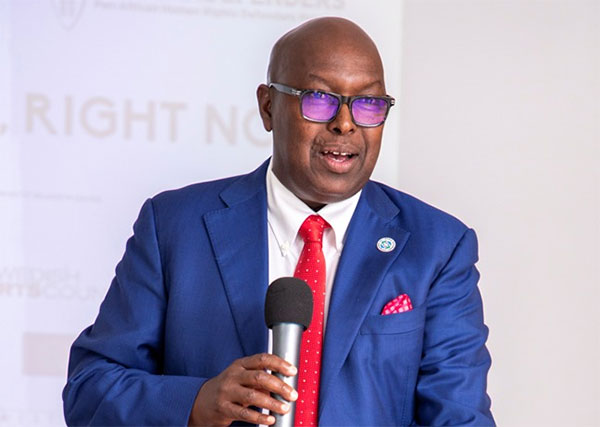
Sudan’s conflict hits home: Uganda’s role in supporting accountability as host to over 69,000 Sudanese refugees and asylum seekers
COMMENT | HASSAN SHIRE | The conflict in Sudan is not only ongoing but intensifying across multiple fronts with warring parties and their allied militias accused of war crimes and crimes against humanity. In an article that I recently co-authored in the Geneva Solutions with Nicolas Agostini, DefendDefenders’ Representative to the United Nations, we argue that ahead of the UN Human Rights Council’s 60th (HRC 60) session, international investigations must be extended and strengthened, and accountability central to any political response to resolve the conflict in Sudan.
This was inspired by a joint letter to the Council, endorsed by over 100 groups of national, regional, and international human rights defenders calling on the international community to stop treating Sudan as a distant tragedy and deliver on accountability. Their message is simple: to end the suffering and build lasting peace, investigations are vital and the Fact-Finding Mission (FFM), an investigative mechanism established by the Council, is the best means to document atrocities, identify perpetrators, and fight impunity. At HRC 60, the resolution on the FFM should strengthen and extend its mandate for two years to allow the investigators time and stability to collect evidence; open new participatory ways to shed light on the country by holding public debates that include civil society, victims, and survivors; and call for the International Criminal Court (ICC) to step up its response to the conflict, for instance, through expanding the ICC’s jurisdiction to all of Sudan.

HRC 60 will convene from 8 September to 8 October to deliberate on the global human rights context. Among the situations to be considered is the raging conflict in Sudan. Now in its third year, it is one of the most devastating on the continent displacing over 13 million people and responsible for over 150,000 civilian deaths, making it today’s largest humanitarian crisis. The country’s social fabric is in tatters, and millions face food insecurity, with 30 million in need of lifesaving aid. Grave human rights violations, including conflict-related sexual violence, indiscriminate killings of civilians, ethnic cleansing, and recruitment of child soldiers, continue to be committed with impunity.
The impact of the conflict cuts across borders. Uganda is no exception. According to the European Civil Protection and Humanitarian Aid Operations statistics, Uganda has been home to 69,000 Sudanese refugees since the conflict started in 2023.
On a larger scale, the Refugee Agency reported that by the end of 2024 Uganda was hosting approximately 1.8 million refugees and asylum seekers. Revered for its open-door refugee policy, this conflict nonetheless places pressure on the country’s progressive refugee policy and capacity. Other countries on the continent, including Chad, Egypt, South Sudan, Ethiopia, the Central African Republic, and Libya, are also hosting large numbers of Sudanese refugees, straining their resources.
It is therefore in the interest of Uganda, and the continent at large, that a ceasefire be upheld and the political impasse resolved. Uganda can leverage its conflict resolution experience for regional influence and support all multilateral efforts to resolve this conflict. The FFM remains a credible and impartial body with the resources to monitor, investigate and document human rights violations in Sudan. For a lasting solution, we reiterate the call to HRC 60 that accountability must be central to the political processes. All regional bodies should play their full part in these efforts.
****
Hassan Shire, Executive Director, DefendDefenders
DefendDefenders is a regional non-governmental organisation registered in Uganda in 2005 that seeks to strengthen the work of human rights defenders (HRDs) in the subregion, including in Sudan, by reducing their vulnerability to the risk of persecution and by enhancing their capacity to effectively defend human rights.
 The Independent Uganda: You get the Truth we Pay the Price
The Independent Uganda: You get the Truth we Pay the Price



